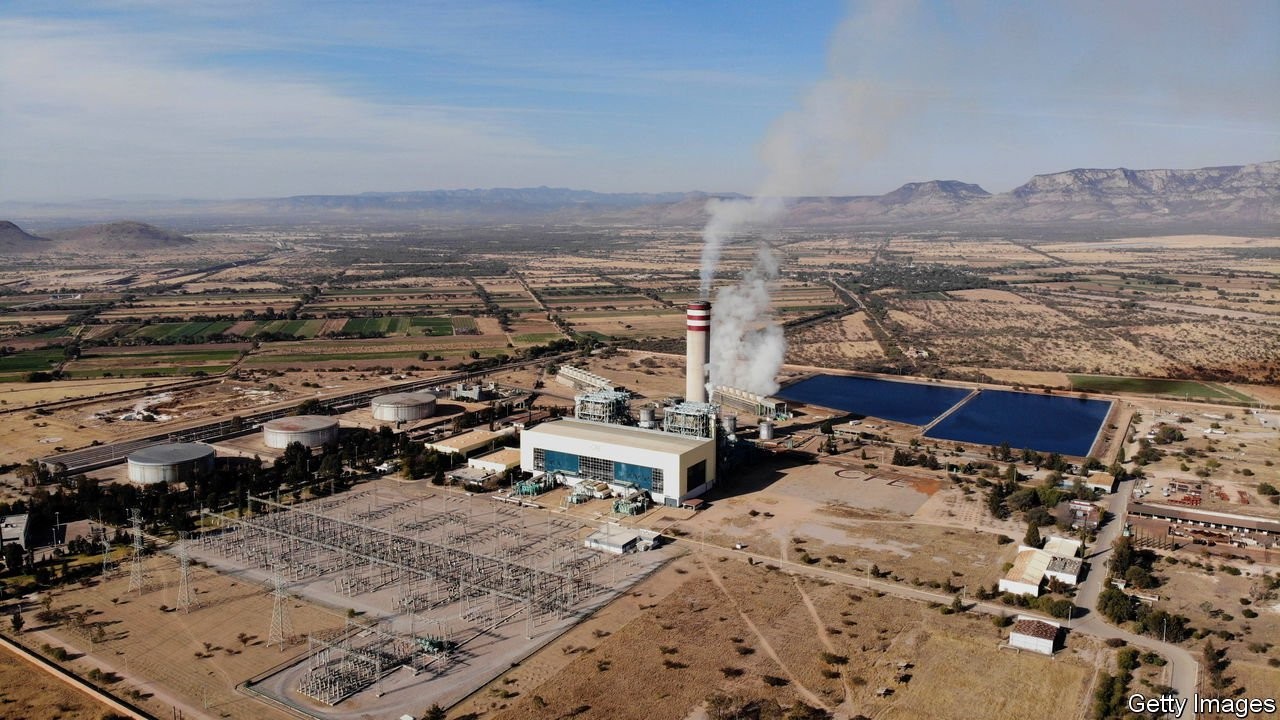In Fall 2021, Mexico’s president, Andrés Manuel López Obrador (AMLO), proposed important changes to the 2014 Energy Reform law, consolidating his previous stances for a centralized economy. At their core, the proposed amendments suggest that the Federal Electricity Commission (CFE) regain sole control of the electricity sector. But the state monopoly no longer holds the greatest market share, which would lead to higher prices and revamping of old power plants to feed the modern grid. The new model would render the electricity sector insufficient to meet the modern country’s demands. The President claims that Mexico’s sovereignty and “national security” depend on a centralized power grid. In reality, however, AMLO’s economic nationalism will shrink Mexico’s economy and ruin its reputation.
At the time of its ratification, the Energy Reform represented another step in a long path towards innovation for Mexico. Almost two decades earlier in 1994, Mexico signed the North American Free Trade Agreement (NAFTA) with the United States and Canada, which opened the economy to foreign investment and the private sector. In the 2014 proposal, the Energy Reform detailed a new economic model for petroleum extraction and electricity production and distribution. In the electrical sector, the Reform created new protocols for hydrocarbon extraction and the creation of two independent regulatory commissions within the Ministry of Energy. Most notably, however, it created the possibility of a free market in which private and more sustainable suppliers could contribute to the national electricity grid.
AMLO’s ascent to the Mexican presidency in 2018 represented a new era in Mexican politics. In the year leading up to the July election, his campaign drew heavily on populist themes. Early on, he had declared himself a candidate for the working poor, blaming poverty, violence, and corruption on the “mafia of power,” referring to Mexico’s political elites. His landslide presidential victory of 53 percent consolidated the Mexican people’s disillusionment with previous governments. For context, his previous two predecessors had won the general election with 38 percent and 36 percent. AMLO treated his astounding victory as a blessing from the Mexican people to radically change Mexico’s political institutions, including the electrical sector.
The 2014 Energy Reform consolidated Mexico’s decade-long efforts toward modernization. For AMLO, however, it displayed the triumph of elites over the public sector, the weakening of a central government, and the decay of Mexican sovereignty. The President claims that relying on foreign investors to provide electricity would compromise the nation’s security and cause grave danger to the Mexican economy. Therefore, the government needed take on the responsibility to regulate the electrical sector. AMLO’s constitutional amendments intend to strengthen the Federal Electricity Commission and eliminate free trade between the state, the private sector, and foreign investors. Under this new model, the electricity grid would primarily use energy produced by state-owned oil-powered plants. Instead of selling electricity at competitive prices, private generators would serve as back-up reserves, selling their electricity at state-dictated prices. Barring competition regulations, the new amendment would return Mexico’s electrical grid to a 1970s energy model.
New amendments to Mexico’s Energy Reform would have grave consequences on the economy. After the 2014 Energy Reform, Mexico’s energy prices declined significantly. In fact, from 2018 to 2021, electricity prices offered by the wholesale market were half the price of those offered by the CFE. Cheaper electricity prices have also spurred foreign investment and manufacturing. In the first two years after the Energy Reform passed, Mexico’s foreign direct investment grew from 2.2 percent of the Mexican GDP to 3.6 percent. Instead of protecting the Mexican economy, the new amendments would negatively impact foreign investments. For foreign companies, the risk of investing in an economy with no reliable electricity supply, hiking prices, and no commitment to providing clean energy poses a threat to their growth. Just in November of last year, senior executives of General Motors threatened to remove their operations in Mexico over the electricity amendments. Perhaps even more concerning, however, the new reform will void private contracts under the new United States Mexico Canada Agreement (USMCA). As a consequence, the Mexican government will have to compensate companies using foreign currency. But even more devastating, Mexico would lose its reputation in the global economy. The consequences of this action will continue to impact Mexico’s economy for decades.
The loss of foreign investors will be the beginning of important changes to Mexico’s economy. Once private companies leave the market and foreign investors return to their respective countries, the greatest impact of higher prices and a less reliable electrical source will be felt by the Mexican people. The economic consequences of his nationalist stances, however, overshadow his ploys for equality. A centralized electricity sector will have opposite effects of those that AMLO hopes to implement. Elevated prices and blackouts will surely follow the amendments. Concentrated in Mexico’s lowest socioeconomic classes, AMLO’s constituency will not have the economic capacity to burden the costs of hiked prices.
AMLO’s proposed changes to Mexico’s 2014 Energy Reform will have long-felt economic setbacks. Rather than strengthening Mexico, the President’s amendments will weaken government institutions and threaten its credibility. Without private participants, the new electricity model will collapse under the current demand for energy. Mexico will inevitably lose economic relevancy, stability, and drive for innovation.
